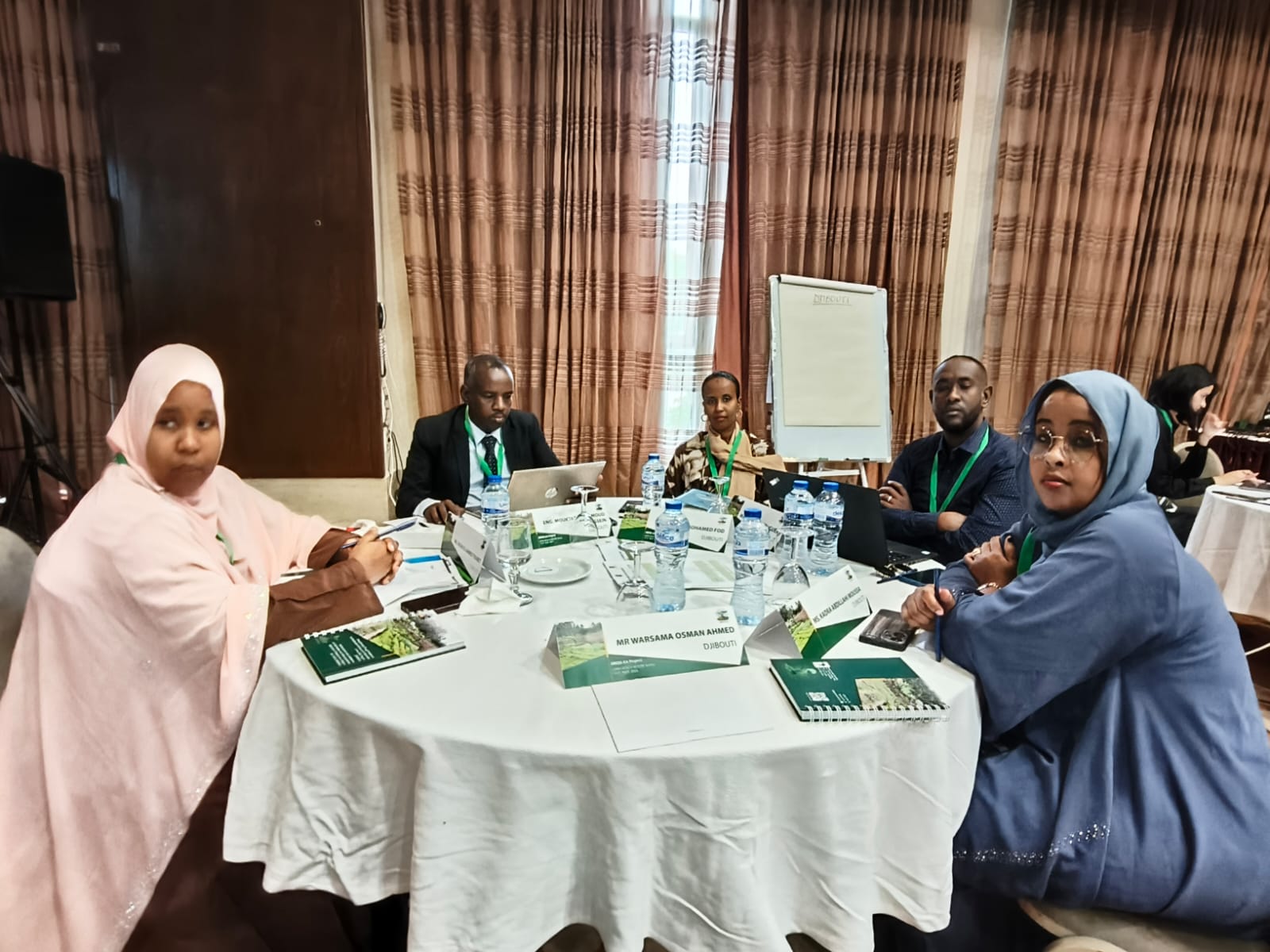
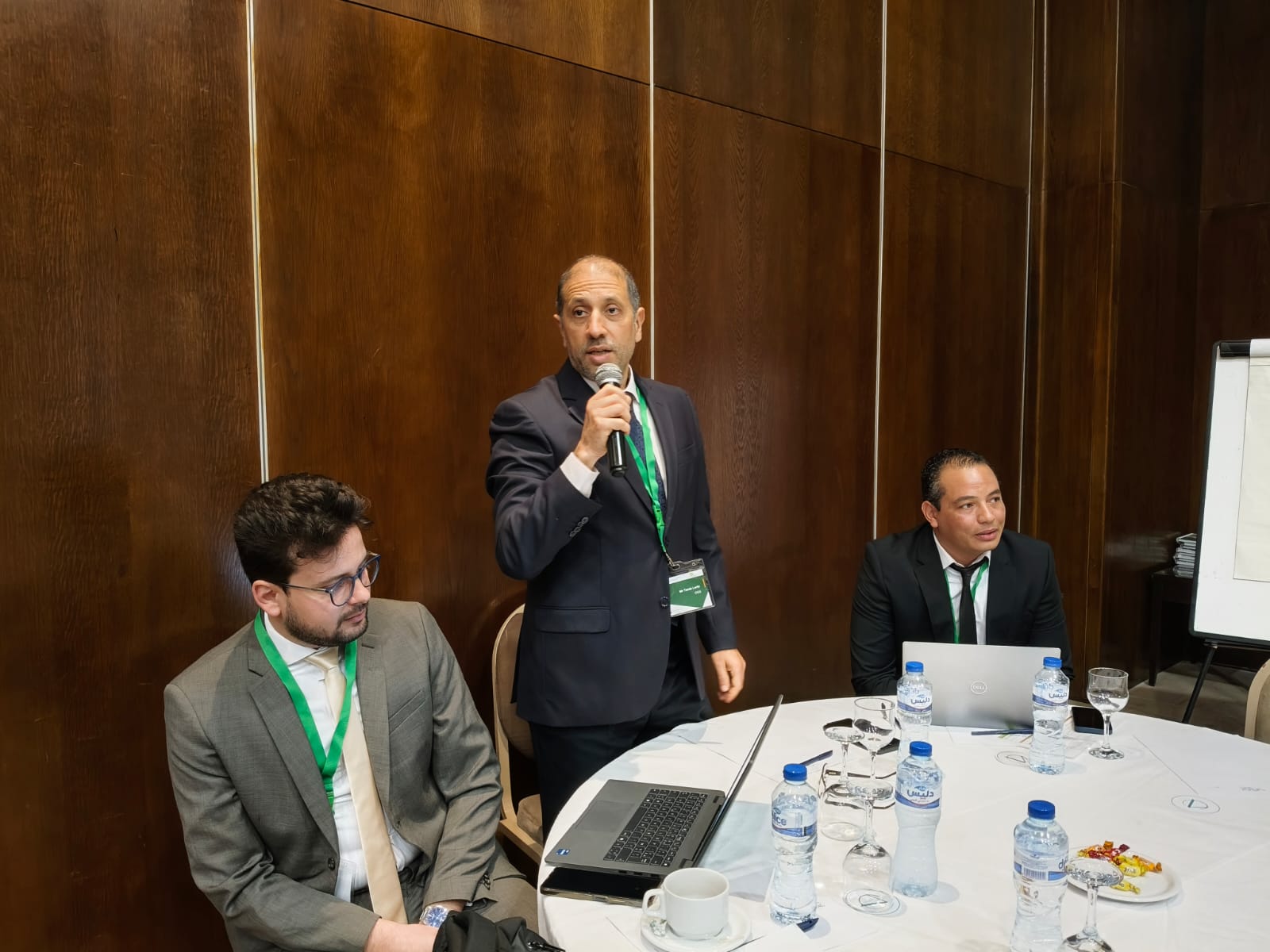
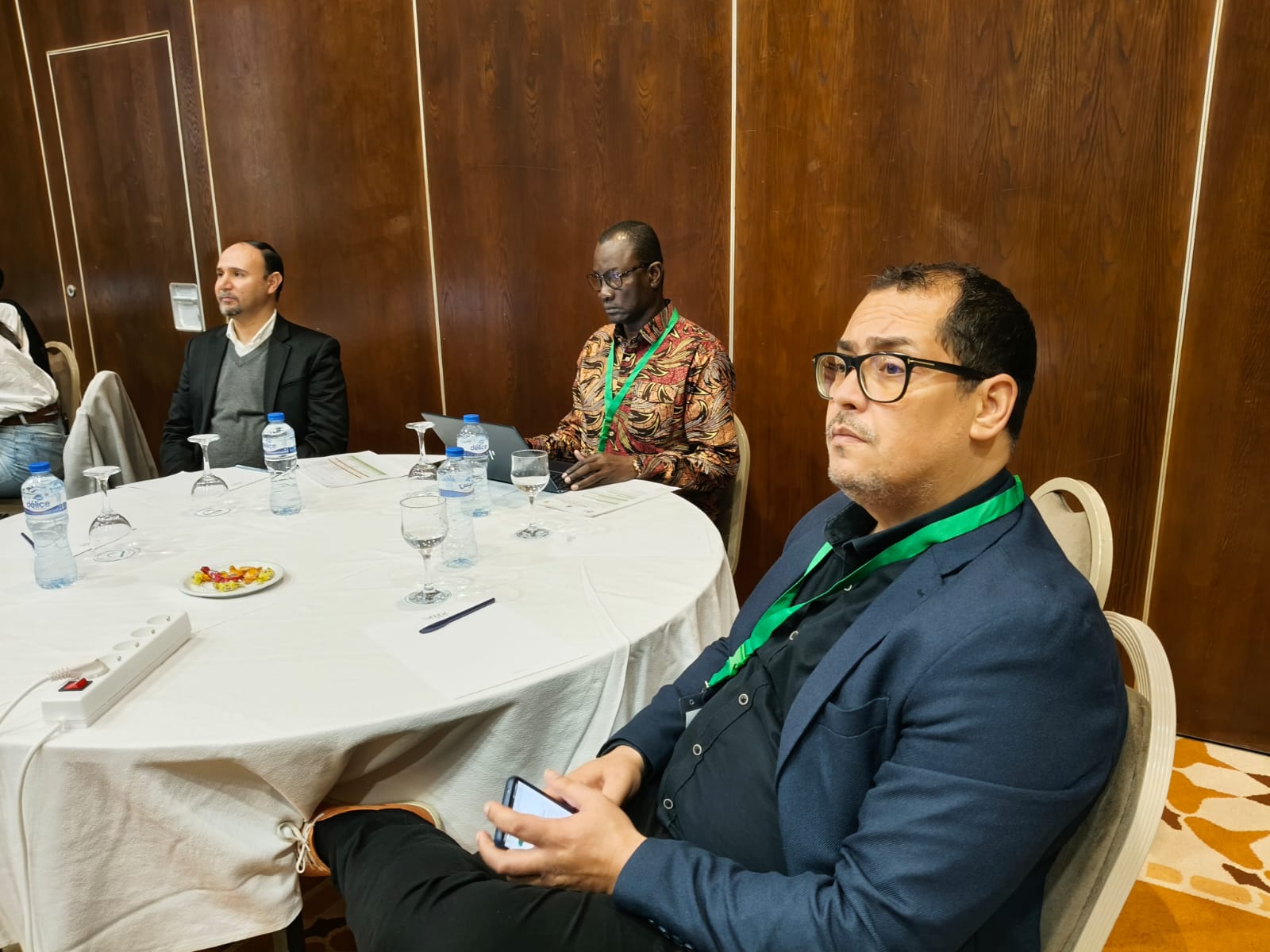
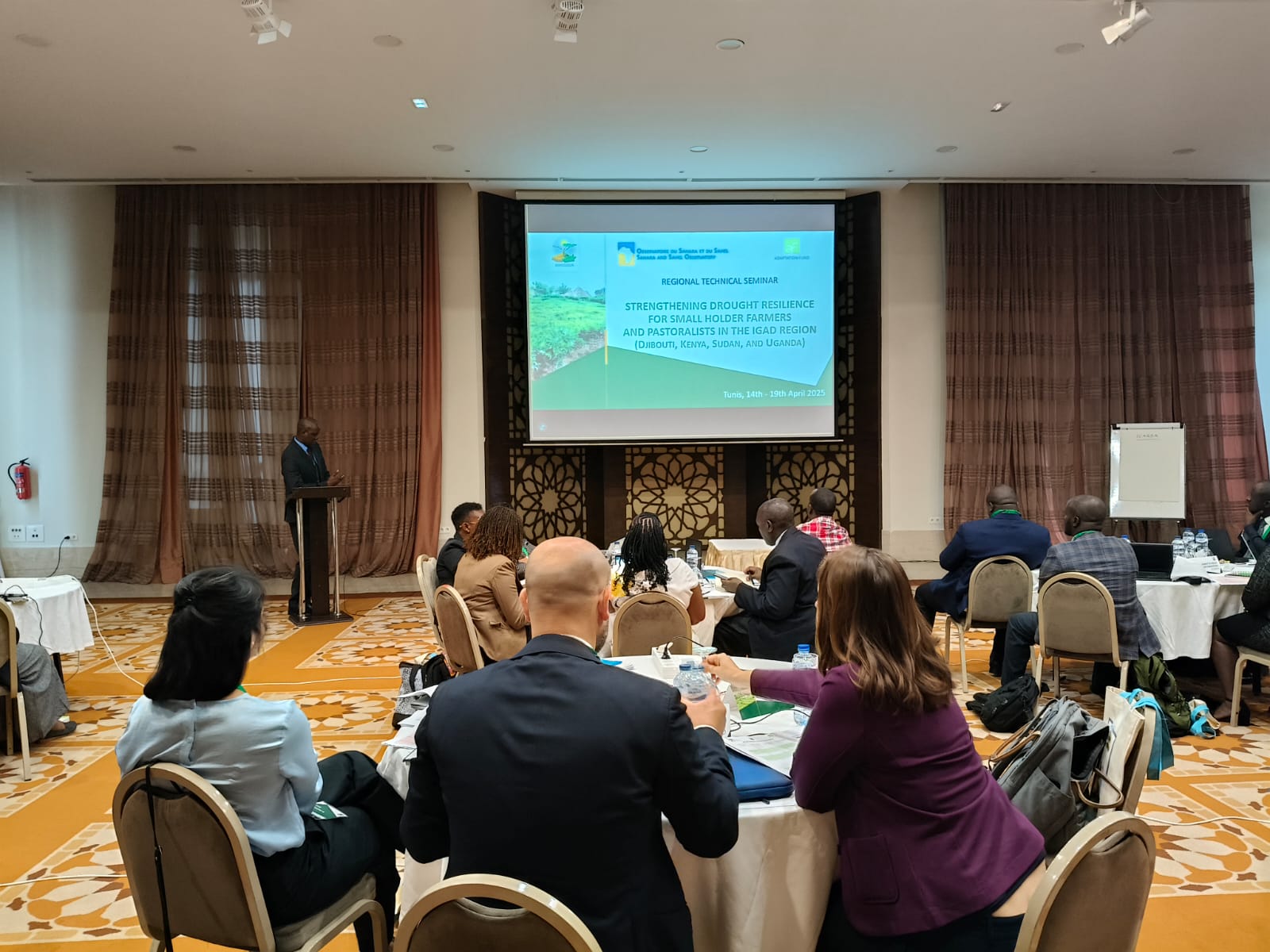
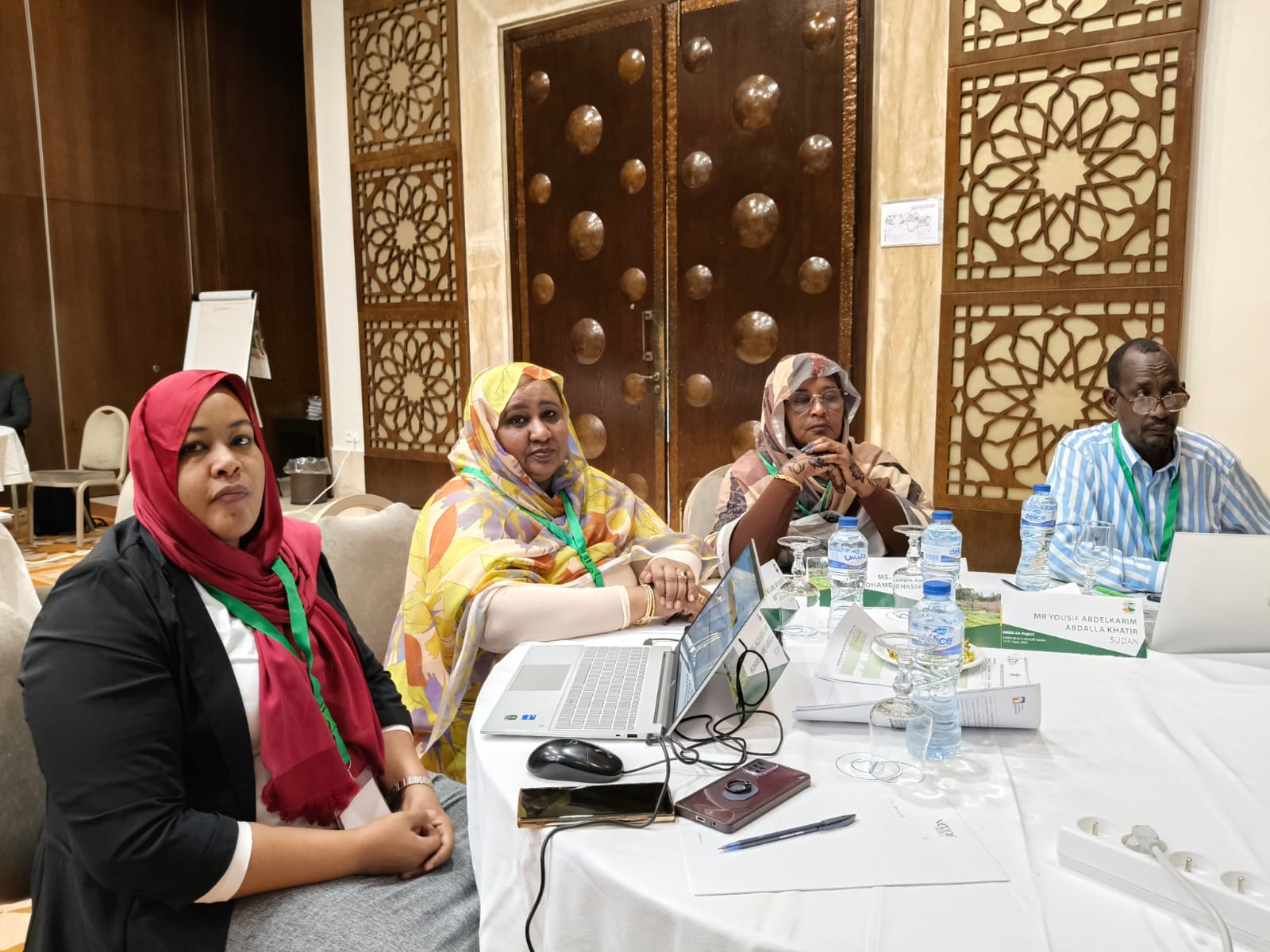
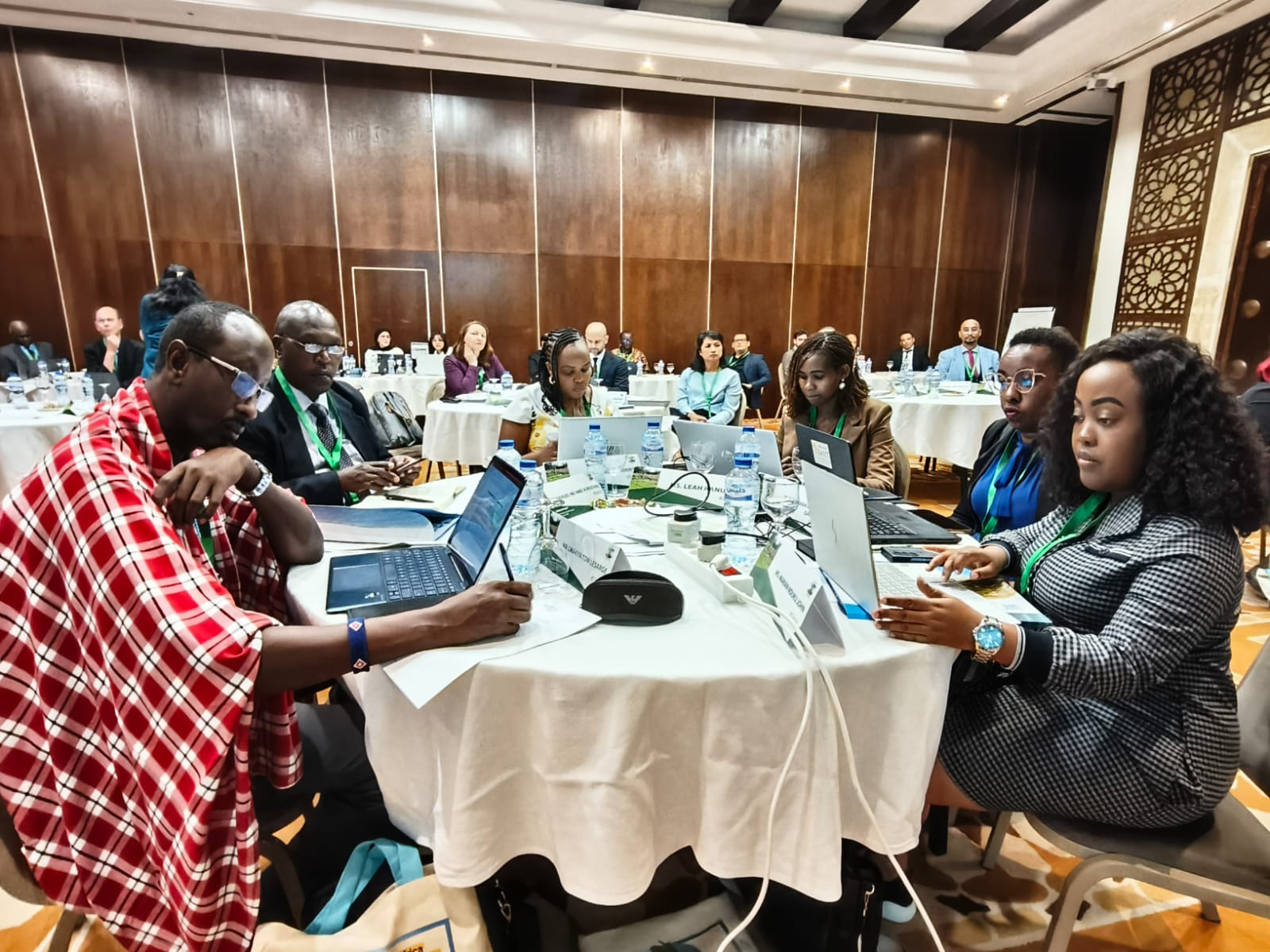
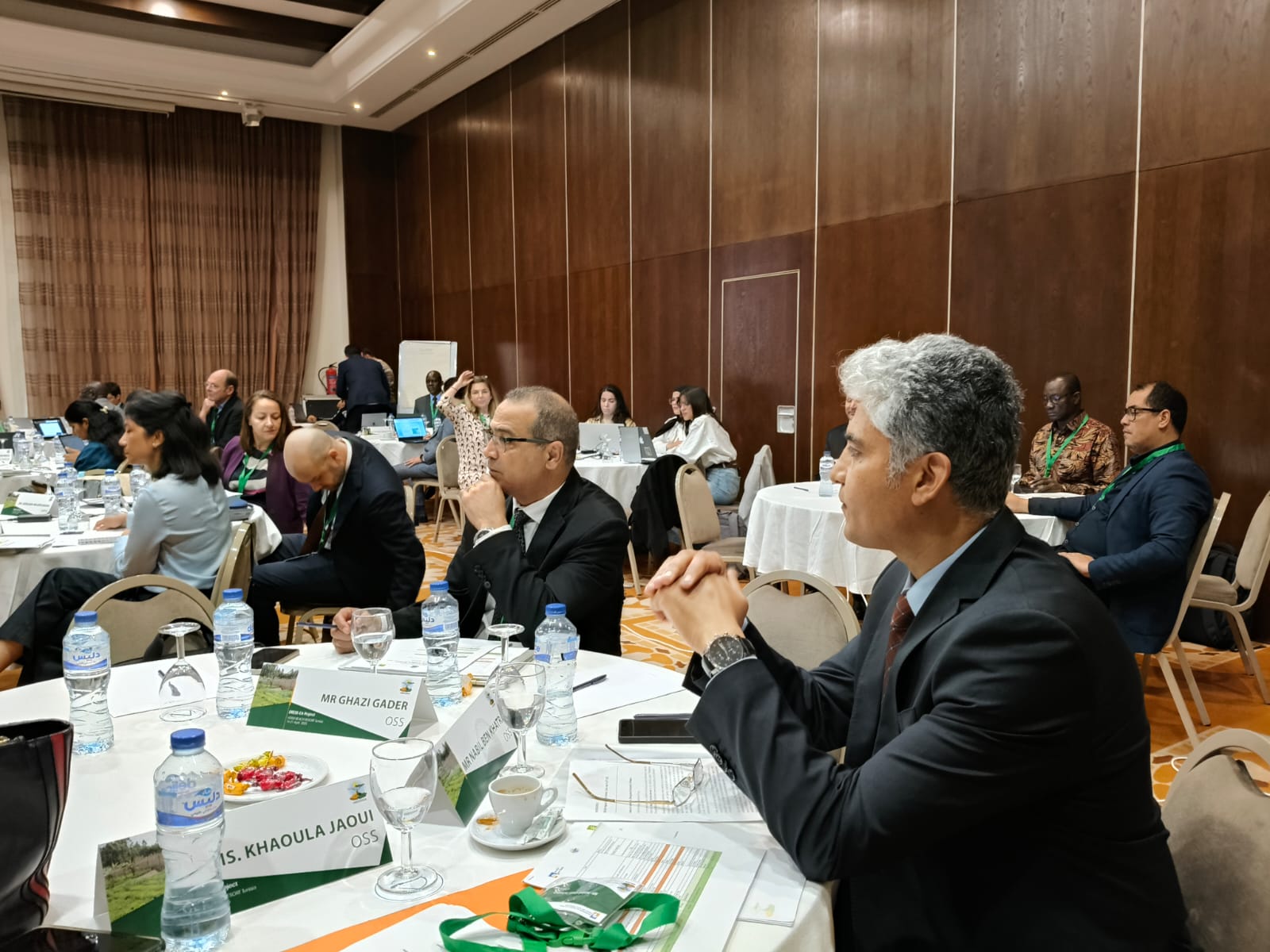
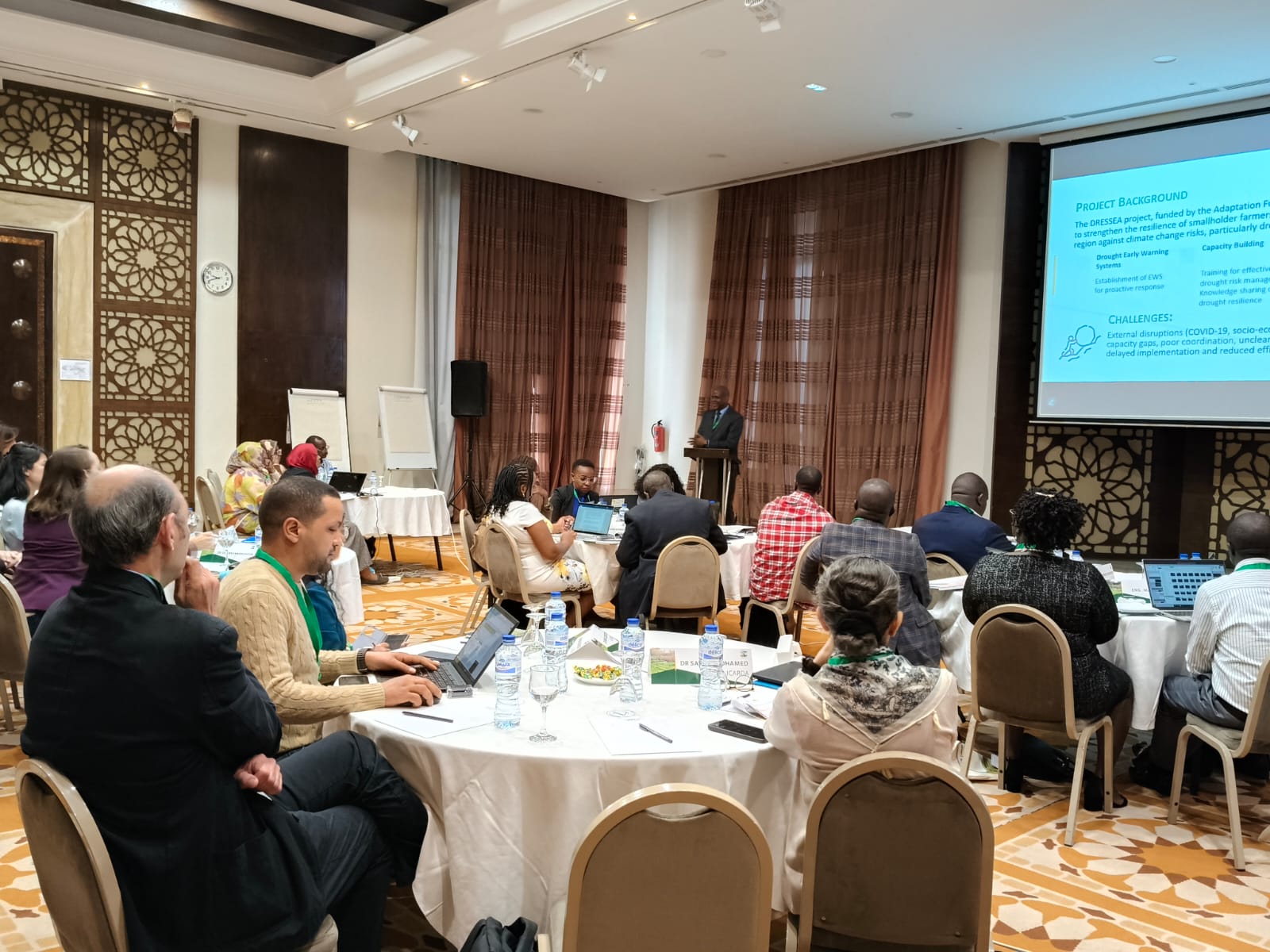
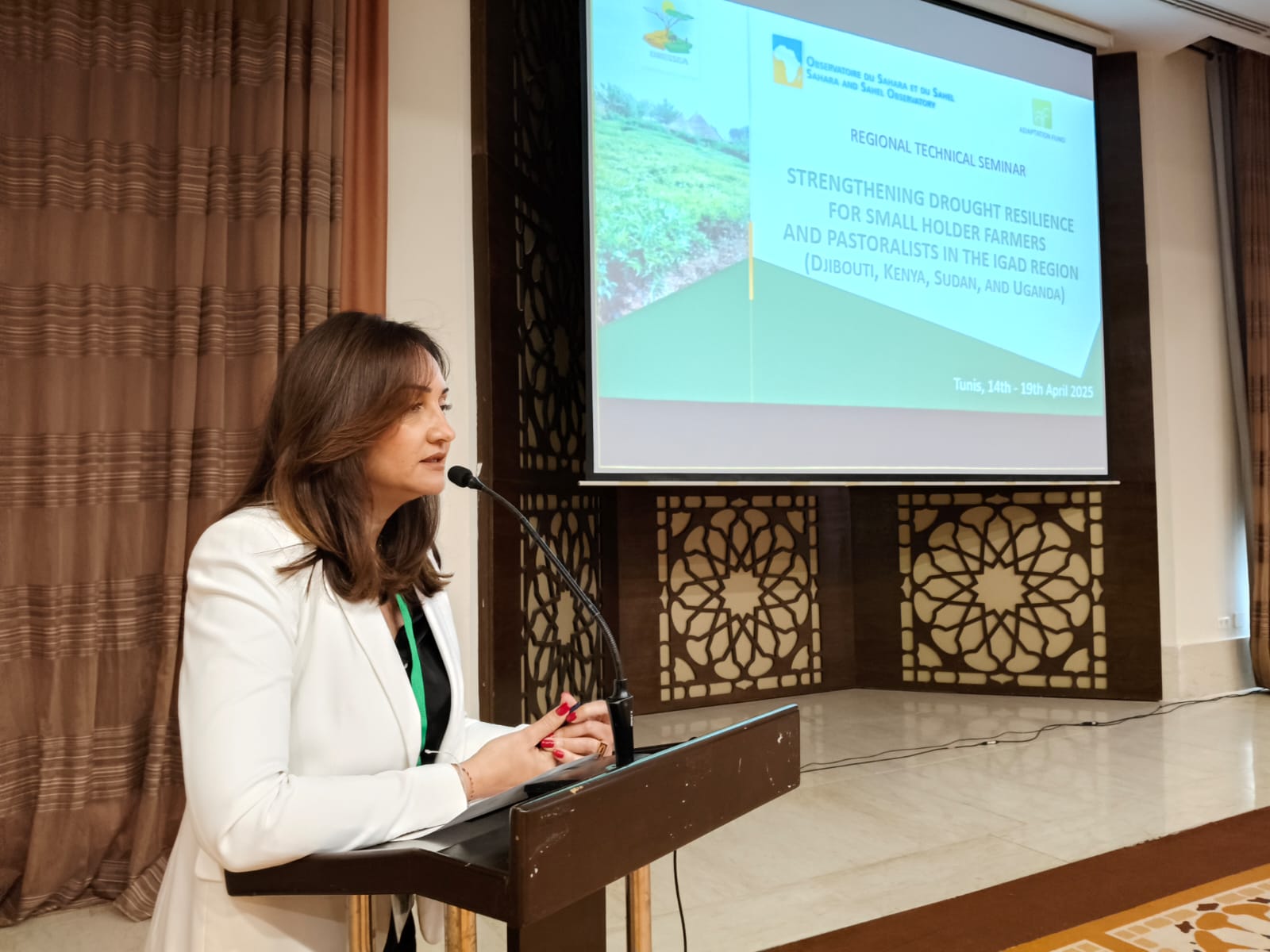
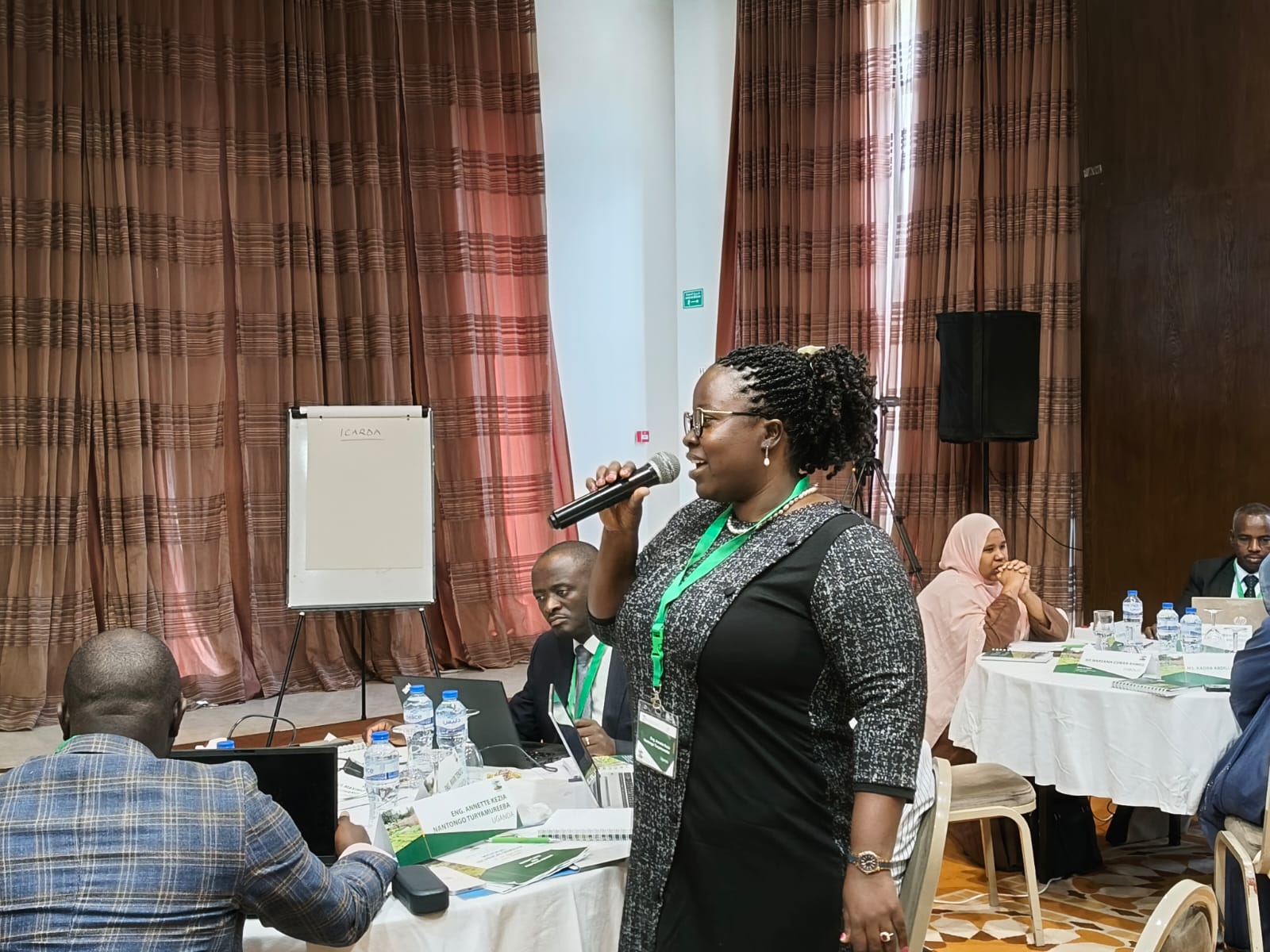
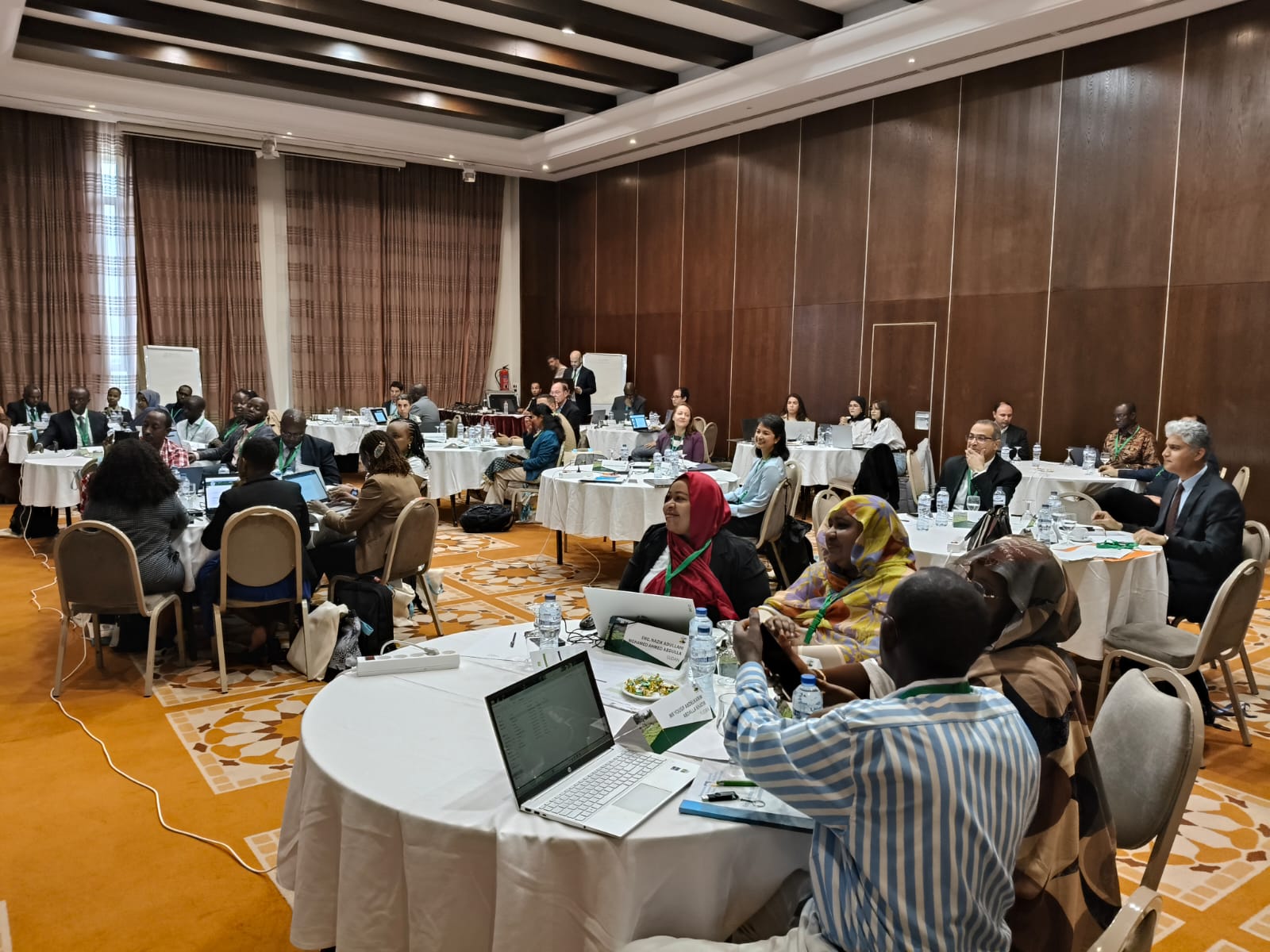
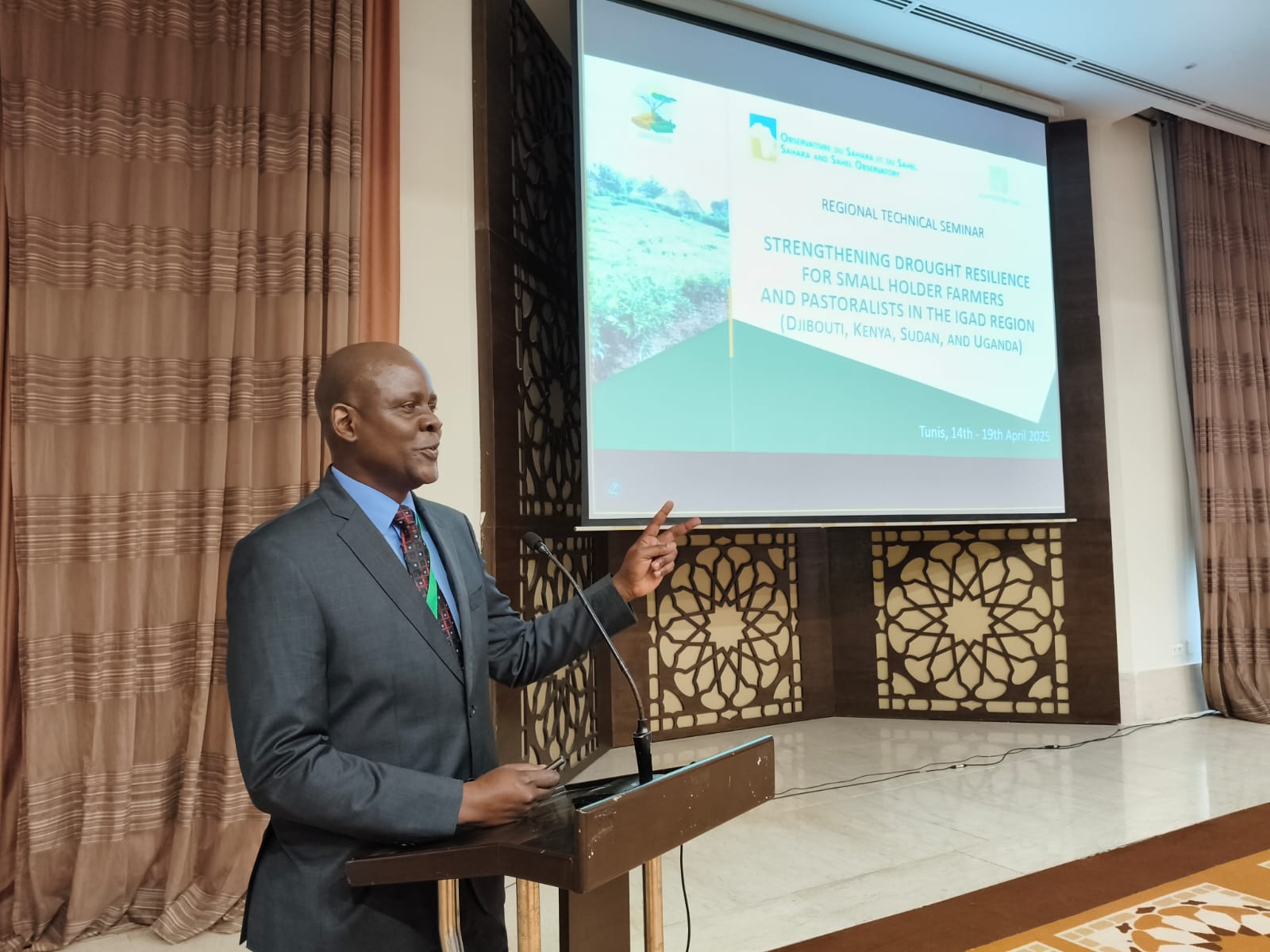
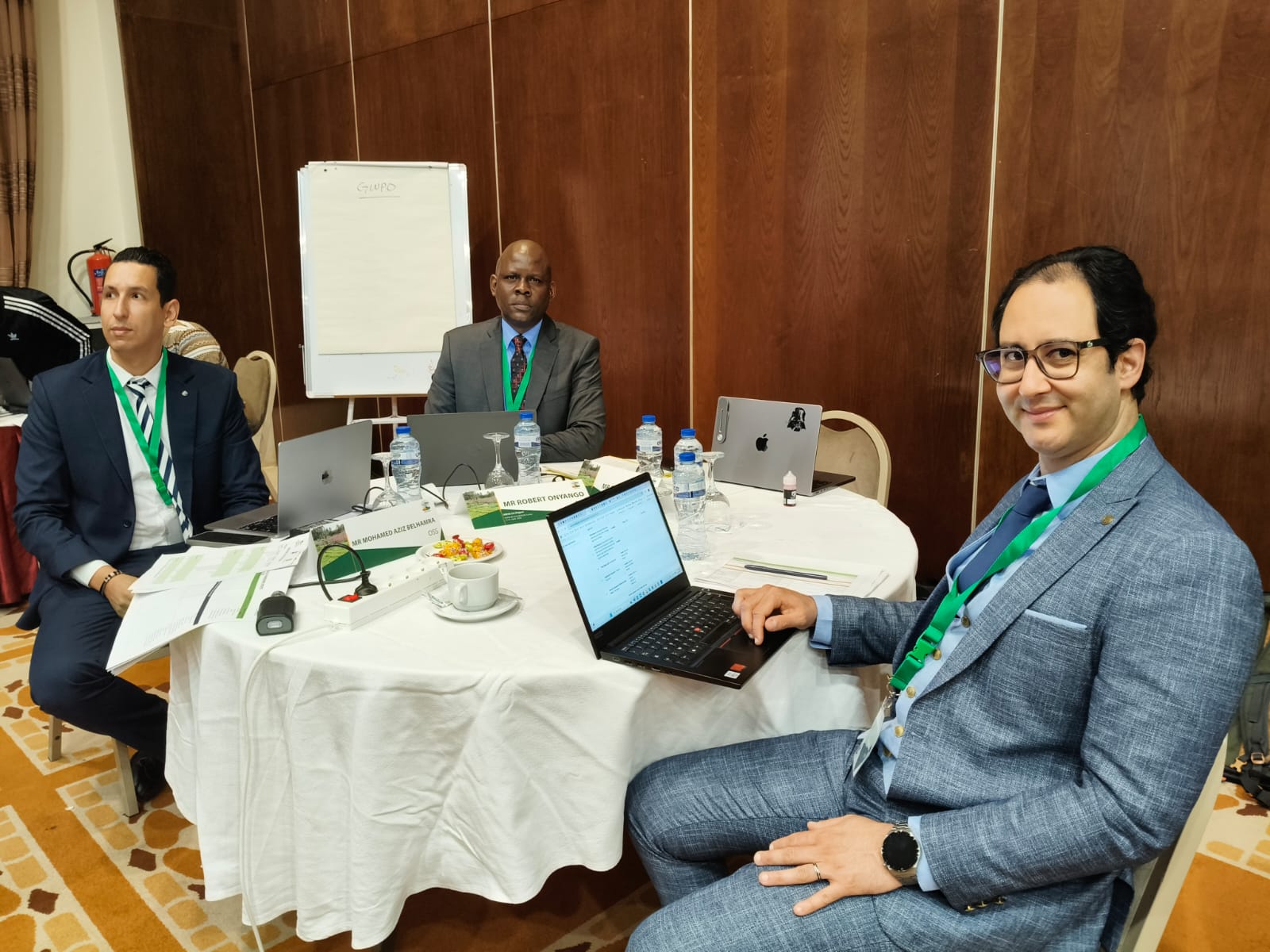
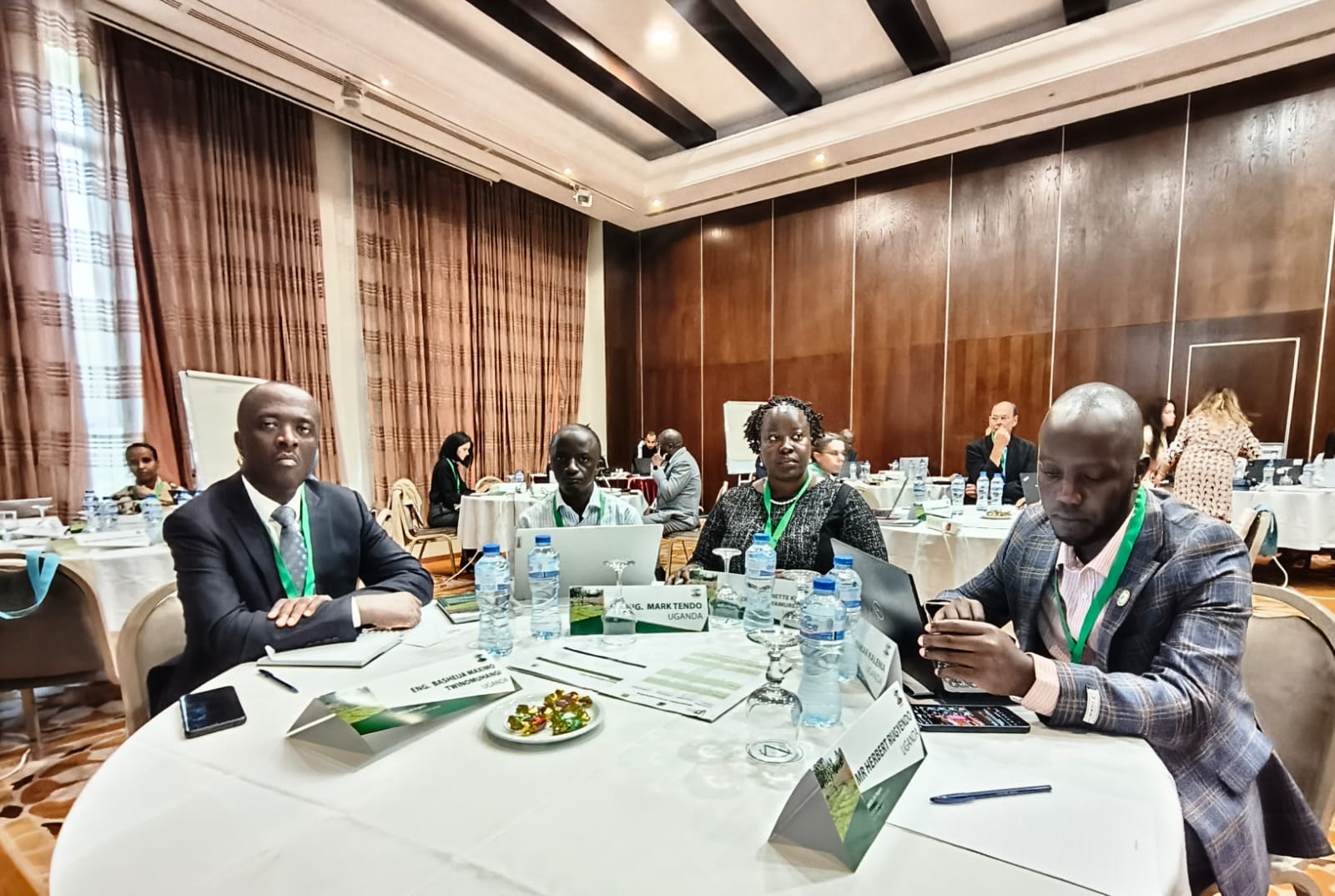
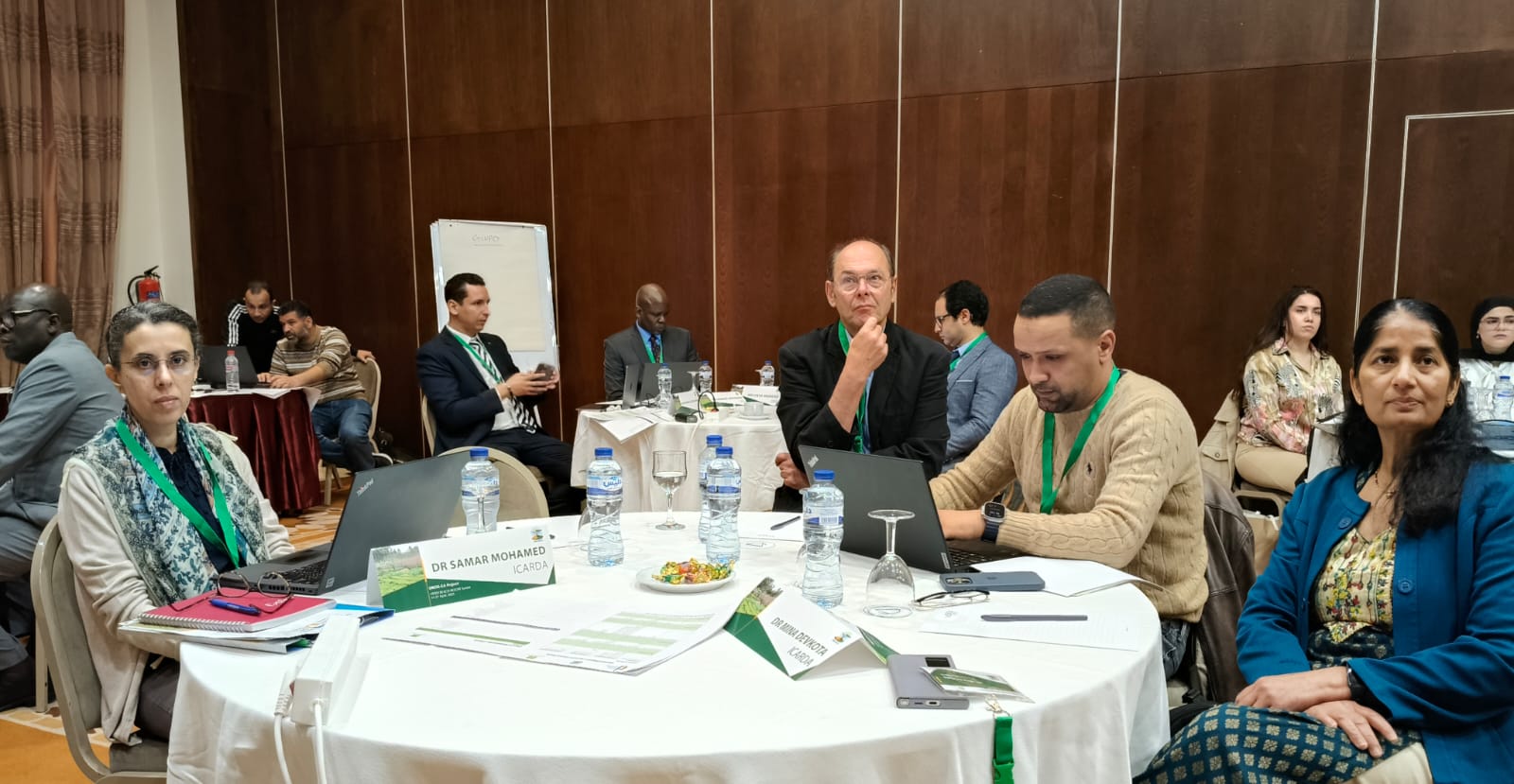
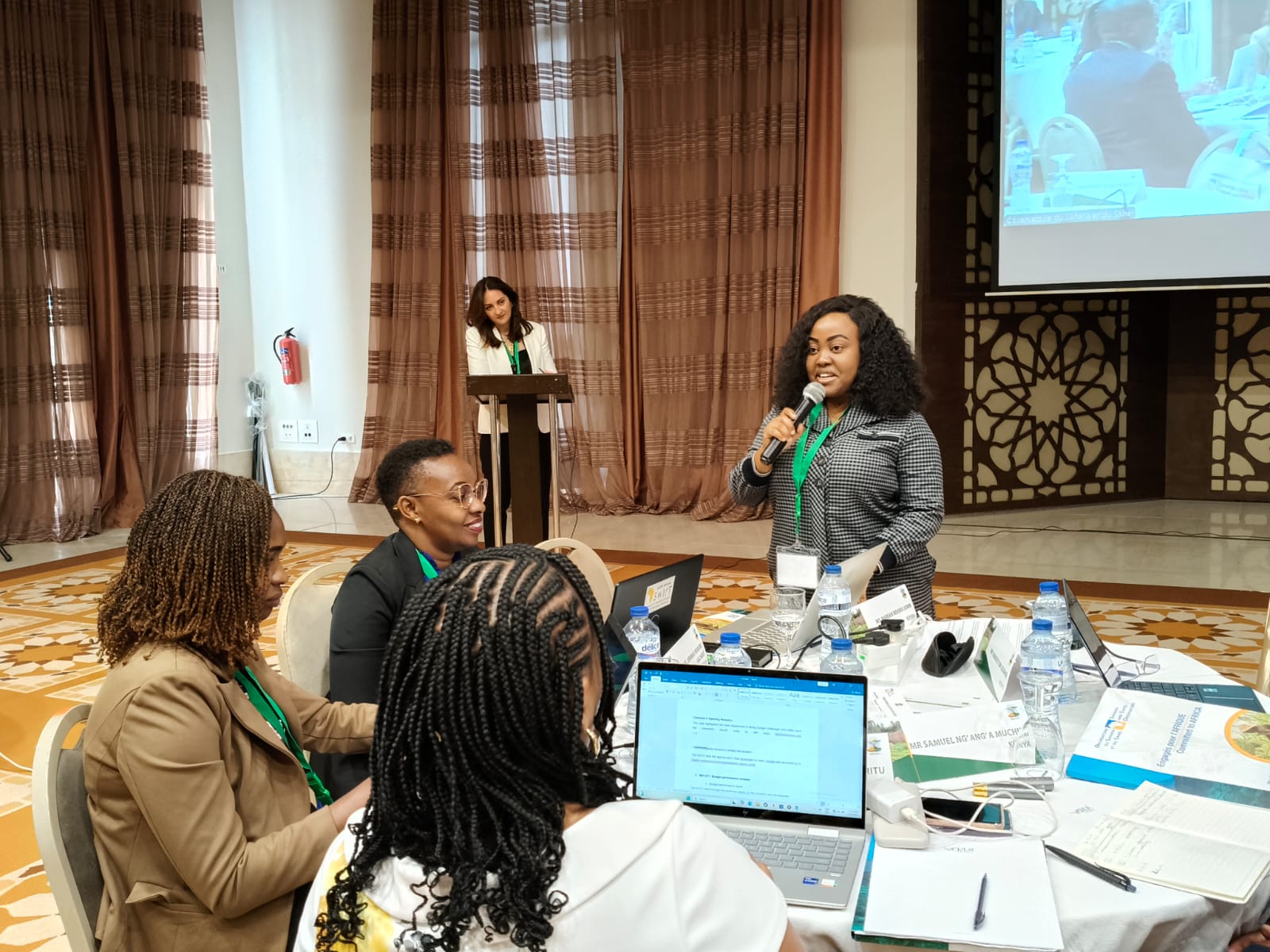
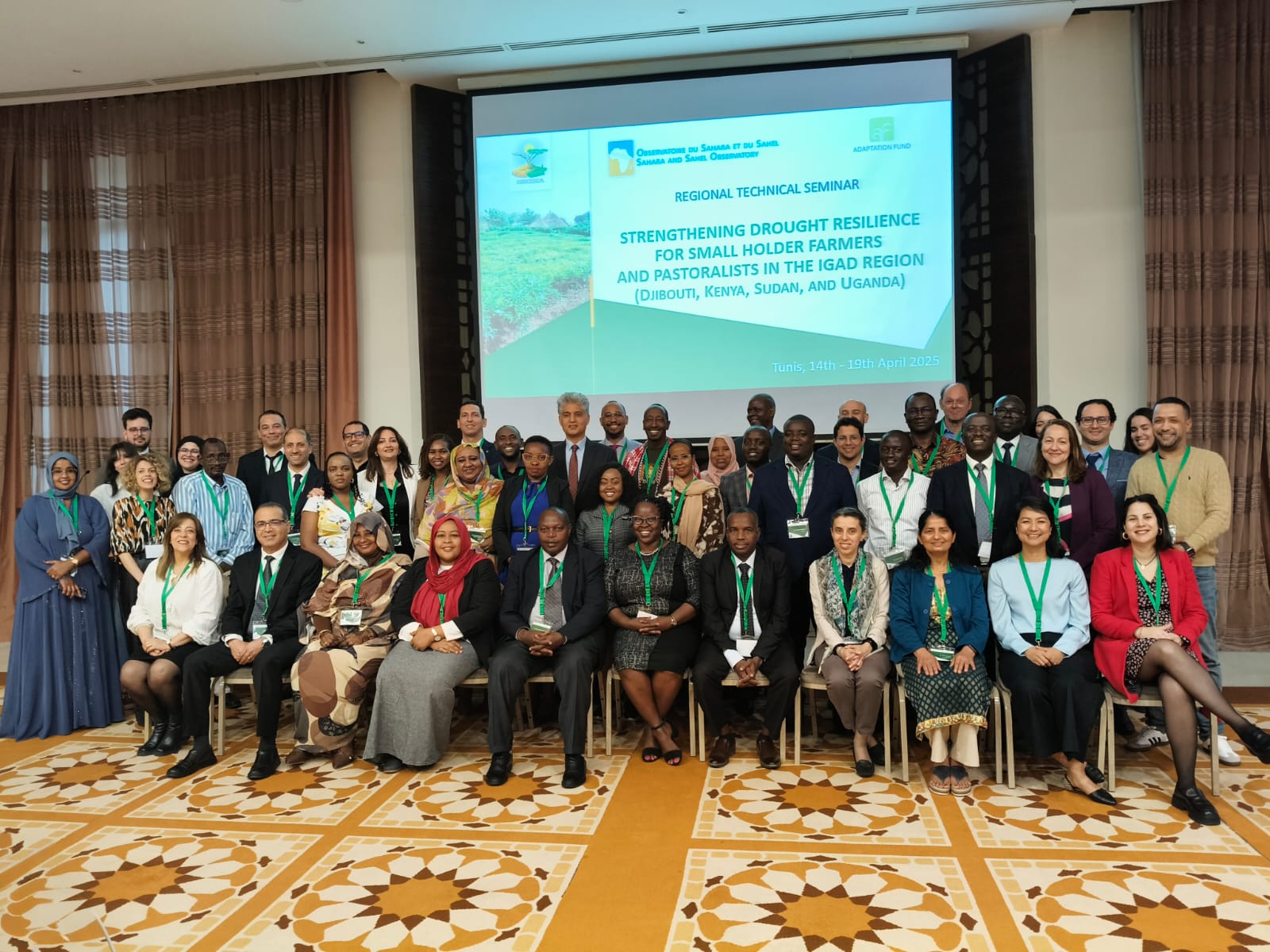
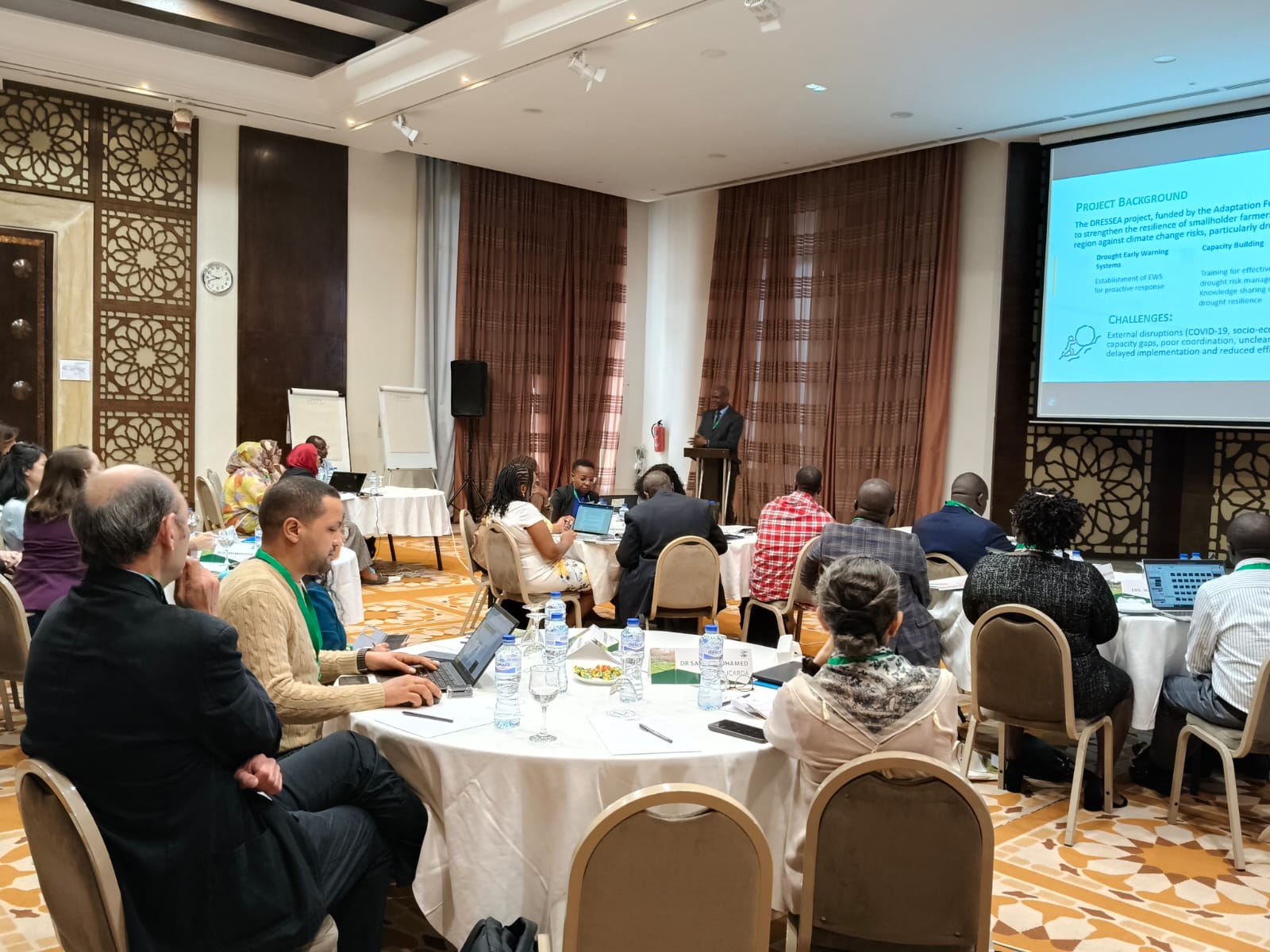
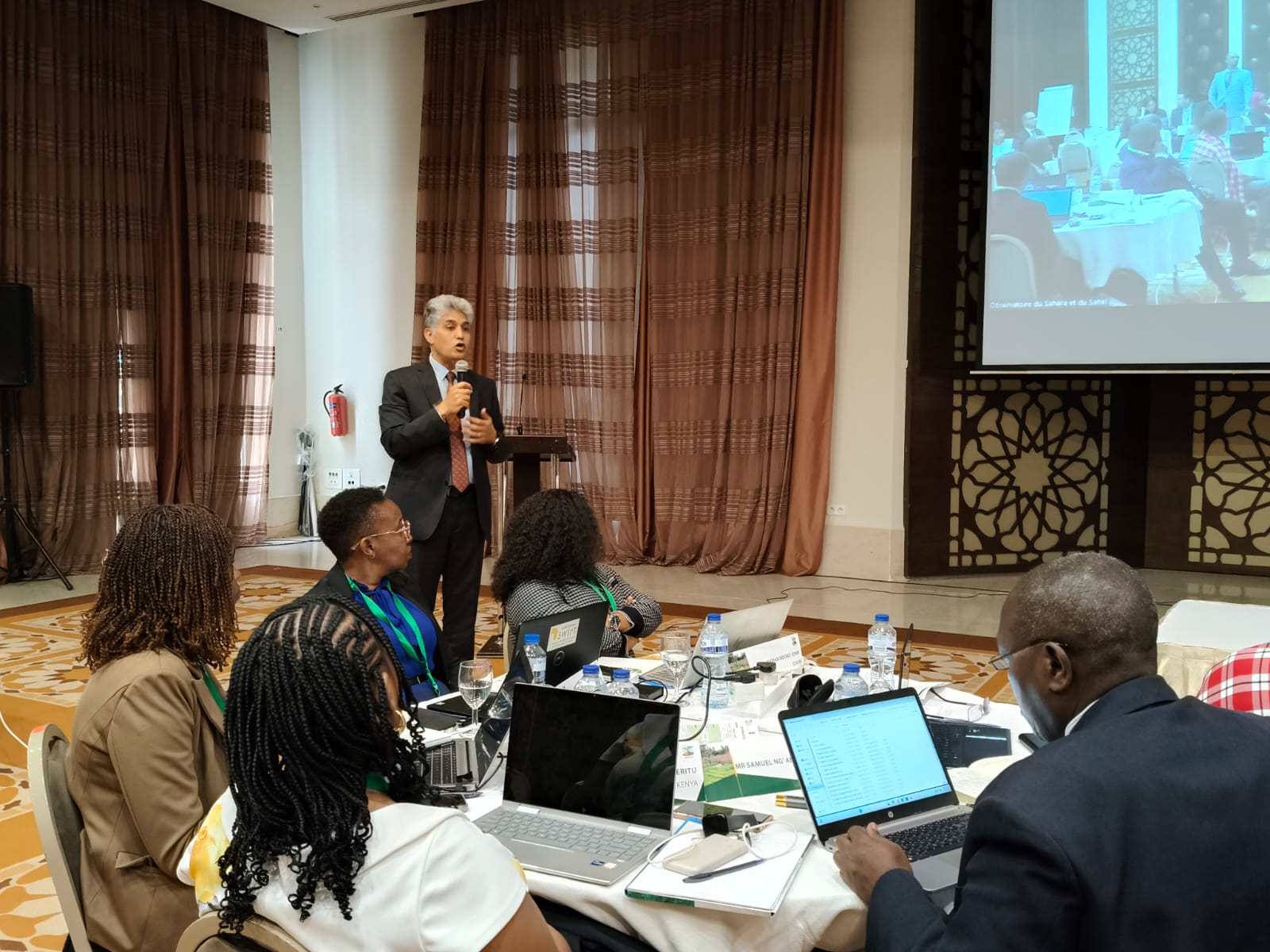
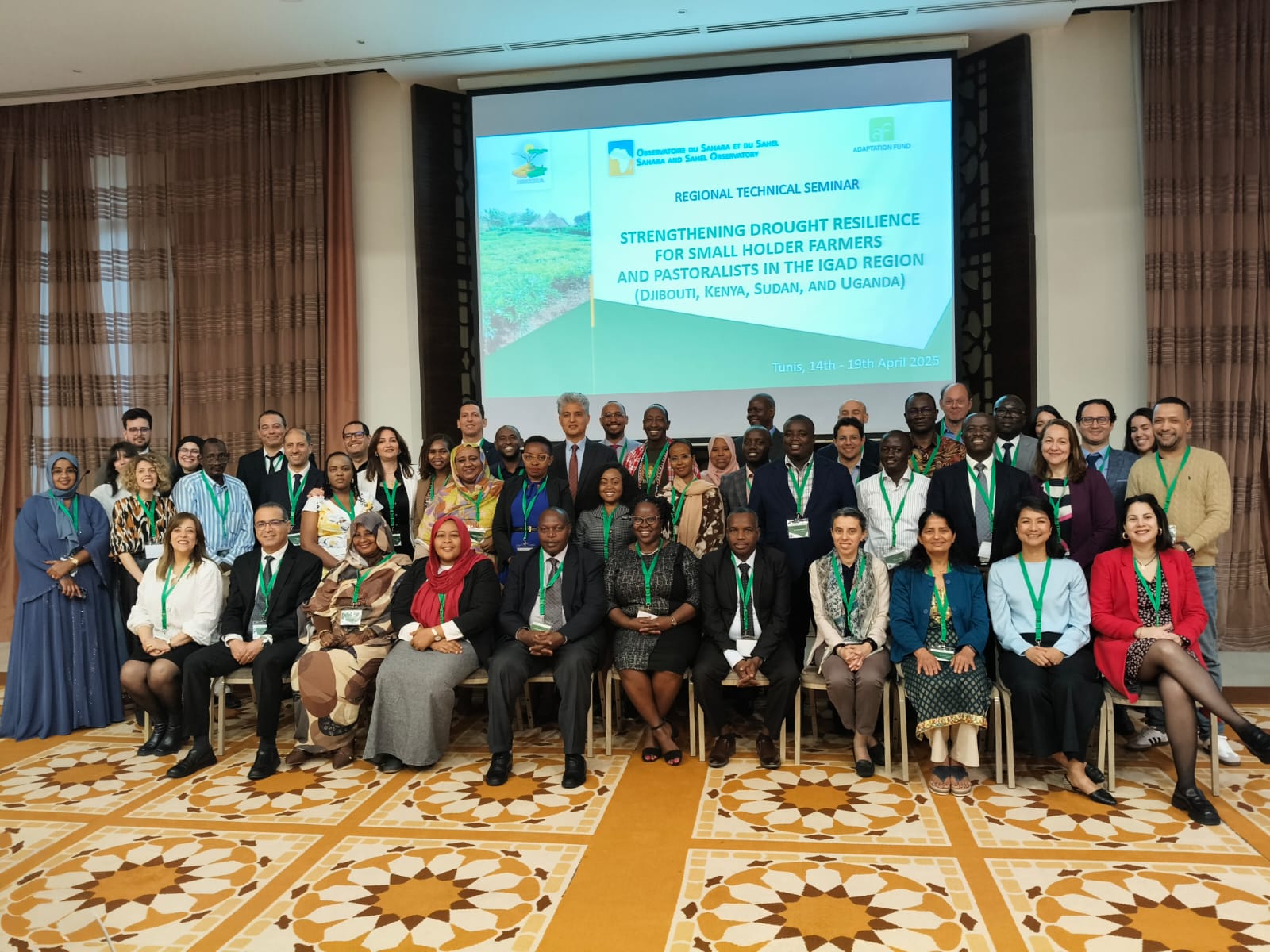
The Regional Technical Seminar of the DRESSEA project officially kicked off its proceedings on Monday, April 14, 2025, in Tunis, bringing together representatives from partner institutions, regional experts, national executing entities, as well as teams from the Sahara and Sahel Observatory (OSS), the Global Water Partnership (GWP), and the International Center for Agricultural Research in the Dry Areas (ICARDA).
In his opening speech, Mr. Nabil Ben Khatra, Executive Secretary of the OSS, emphasized that this event marks a pivotal stage of the project, characterized by exchange, innovation, and collective action. He invited participants to freely share their experiences, to leverage each other’s strengths, and to jointly develop solutions tailored to the realities of each country. He also reiterated that whether it involves strengthening early warning systems, promoting climate-resilient agricultural practices, or developing income-generating activities, local communities must remain at the heart of all interventions.
Ms. Khaoula Jaoui, Director of the Climate Department at OSS, then welcomed all the national teams, commending their continued commitment and exemplary dedication to the implementation of the project. She stressed the importance of this meeting in enhancing the coherence of actions, consolidating achievements, and collectively identifying the levers to maximize impact on the ground. She concluded by expressing hope that these technical and strategic exchanges would help outline an ambitious and realistic roadmap, grounded in the needs expressed by local stakeholders.
This strategic seminar, facilitated by ICARDA, marks a key step in revitalizing and accelerating the implementation of the project, which has faced several challenges since its inception, including the COVID-19 pandemic, security instability in Sudan, and delays in national activity execution.
Funded by the Adaptation Fund and implemented by OSS, the DRESSEA project aims to strengthen the resilience of smallholder farmers and pastoral communities to droughts worsened by the effects of climate change. The countries involved are Djibouti, Kenya, Sudan, and Uganda — all members of IGAD — where drought is a recurring phenomenon with particularly devastating consequences for the most vulnerable populations.
Originally set for a four-year period (2020–2024), the project has now received an 18-month no-cost extension, granted by the Adaptation Fund, to allow the achievement of its initial objectives. Against this backdrop, the seminar serves as a space for exchange and re-engagement around a common ambition: to establish effective early warning systems, promote concrete adaptation actions, and strengthen the capacities of stakeholders at all levels.
Over five days, participants will review the technical and financial progress of the project, identify ongoing bottlenecks, develop operational documents (concept notes, terms of reference, protocols), and create a roadmap to ensure the successful execution of the remaining activities.
Beyond its technical dimensions, this seminar serves as a call for renewed collaboration, better coordination among actors, and a strong commitment to the communities most vulnerable to climate impacts in the Horn of Africa.